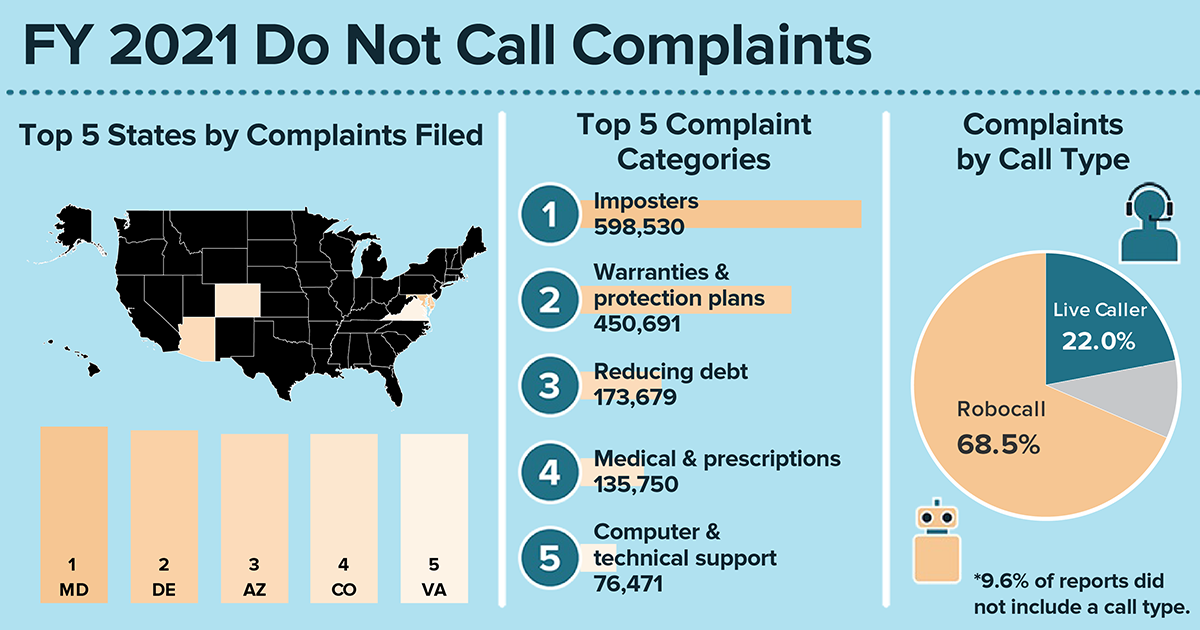 In the past 18 years of the National Do Not Call Registry, those of you signed up for the registry (244 million phone numbers right now) have reported millions upon millions of unwanted sales calls over the years. Here’s a quick look at what you’ve reported this year at DoNotCall.gov about the calls you’re getting:
In the past 18 years of the National Do Not Call Registry, those of you signed up for the registry (244 million phone numbers right now) have reported millions upon millions of unwanted sales calls over the years. Here’s a quick look at what you’ve reported this year at DoNotCall.gov about the calls you’re getting:
- The overwhelming majority of calls reported were robocalls — 68 percent of the 5 million calls you reported during the fiscal year ending October 2021 were robocalls. (If you answer the phone and hear a recorded message instead of a live person, it's a robocall). Another 22 percent were live calls.
- The most common topic of the calls you reported was imposters, including calls from scammers pretending to be the Social Security Administration or IRS.
- The next most-reported topic — up by more than 175,000 from last year — was warranties and protection plans. Following that were calls about debt reduction, medical and prescription issues, and computers and technical support.
Learn more about these reports, including data for your state.
Your reports show what we all know — even if you’re on the registry, you’re still getting unwanted calls. Legitimate, law-abiding companies typically follow the Do Not Call rules. But scammers often ignore them. To get fewer calls, read about some steps you can take to block unwanted calls.
And please, keep reporting calls at DoNotCall.gov. The FTC and other law enforcement agencies analyze reports to identify and take action against the people responsible for illegal calls and scams. The FTC also takes the phone numbers you report and releases them each business day to help telecommunications carriers and other industry partners that are working on call-blocking and call-labeling solutions.
Learn more about blocking unwanted calls.

In reply to I reached 1000 blocked calls by Skier1
In reply to I'm with Verizon and some of by LinniK
You might have other ways to block calls. This FTC article about blocking unwanted calls has links to call blocking apps, including company-specific apps, and checking services from your provider.
In reply to Every day I receive at least by Chuck
In reply to MORE needs to be done. by POkey
The FTC brings cases against businesses and people who make illegal robocalls. This page lists some of the cases.
In reply to so why hasn't something been by esamax
The FTC brings cases against businesses and people who make illegal robocalls. This page lists some of the cases. For example, in October 2021, the FTC returned $1.1 million to people who paid for an allegedly bogus money-making opportunity that was marketed and sold with illegal robocalls and other methods.